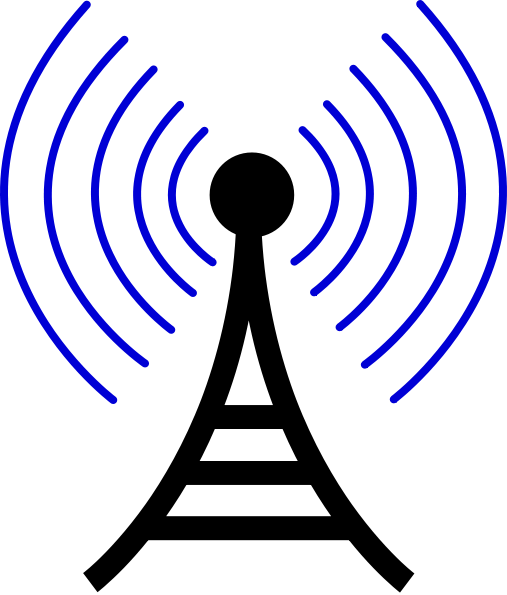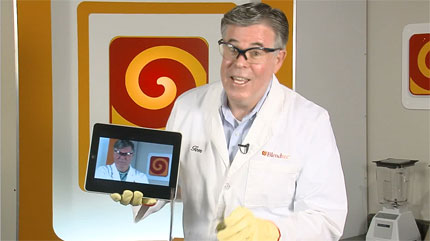Once an employee of the Secret Service, the computer hacker Albert Gonzalez has been sentenced to 20 years in prison for credit card fraud.
Search Results
You searched for: Computers
The father of fractal geometry marvels that his work has led to computer renderings of natural shapes that are indistinguishable from the real thing.
▸
3 min
—
with
I spoke with one of Atlanta’s former mayors last week about the new advocacy organization she had just joined. Shirley Franklin, the first black woman to run the city, seems […]
Imagine how different your life would be if next Earth Day a year from now, you supplied the power to this computer—by pedaling, churning or dancing. The way these students […]
When I was a child and decided to become a physicist, I never dreamed that I would be traveling all over the world with a TV film crew, or lecturing […]
Will wonders never cease: professional self-promoter Emily Gould recently accused feminist blogs of stoking their readers’ outrage to “gin up page views.” Gould’s case in point is a reported piece […]
Personally, I remember back in the 1970s when string theory fell out of favor. At the time, it was very difficult to get a job and many people dismissed the […]
Massimo Vignelli was once traveling by train with the great Le Corbusier and his circle. It was the dead of summer, and as a young architecture and design “groupie” Vignelli […]
If I want you to give time or money to my cause, I’ll say your sacrifice is for “people just like you, just like me,” for “communities like yours, all […]
Iphone meets blender. Blender wins. Story of all our lives, isn’t it? I mean, given that we’re all heading for an inevitable blending of our constituent atoms with the universe’s flotsam […]
I have finally stopped yelling at my computer screen this morning, after making the rounds at POLITICO, Talking Points Memo, and The New York Times. It seems that among the […]
Over the past couple of years, marine sustainability has risen to the top of the environmental movement’s concerns. But in a supply/demand market economy, our seafood choices as consumers have a significant impact on the issue. So how can design help consumers make smarter, more sustainable seafood choices?
“Remarkable claims require remarkable proof.” — Carl Sagan The “multiverse” idea—once thought to be so crazy it only belonged on late night television—has now become the dominant theory in all of […]
This Monday marked the 15th anniversary of the Oklahoma city bombing, an attack which killed 168 people and injured 680 more. As we know now (and as we were reminded […]
With the help of a new machine, a German computer engineer has pieced together 600 million scraps of shredded documents from the former East German Ministry for Security.
The “bacterial communities” that live on human skin are now thought to form colonies on inanimate objects regularly touched by human hands, such as your computer keyboard.
There are rare moments when I read a story in the news and feel like I am reading my own writing. It happened again yesterday when I read a piece […]
The founder of 37signals defines cloud computing, its role in the future of computing, and the overblown anxiety around its security.
▸
5 min
—
with
U.S. authorities have traced the I.P. addresses used to hack Google gmail accounts to a vocational school in China but who is responsible for the cyber attacks is a question that lingers.
Robots and smart sensors designed to support independent living for the elderly and infirm are being developed by researchers at the University of the West of England.
The cover of this month’s issue of Fast Company has an excellent article by Anya Kamenetz on how smart phones are leading the charge in revolutionizing traditional methods of teaching and learning. […]
A conversation with the professor of computer science at Yale University.
▸
12 min
—
with
The information technology expert believes rich communication between computers and humans is the wave of the future.
▸
1 min
—
with
If only Miss Marple had been a bisexual biker with multiple piercings and a criminal record like the heroine in Stieg Larsson’s bestselling novel “The Girl with the Dragon Tattoo.”
The Yale computer science expert believes books “are among the most beautiful things we have.” To replace them all with digital texts would be a serious blow to learning.
▸
4 min
—
with
Scientists at MIT have demonstrated the first laser that operates using the germanium element in a move that could bring us closer to optical computing.
When Benoit Mandelbrot first began the work that led to the birth of fractal geometry, there was “an explosion of interest” from his colleagues. “Everybody in mathematics had given up […]
More than 75,000 computers at nearly 2.500 firms in the U.S and worldwide have been hacked into in what a security firm is calling the biggest cyber attack discovered to date.
The second part of Eruptions readers’ recollections of the historic May 18, 1980 eruption of Mount St. Helens.
Nanotechnology, when perfected, may lead to developments including robotic muscles, solar cells, or synthetic muscles for humans.




















